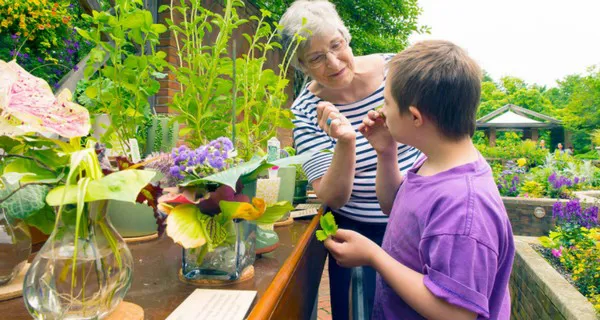Many people enjoy looking at plants and flowers and find it relaxing to dig in the dirt. But research and a growing number of horticulture therapy programs are showing that gardening holds serious healing power. Trained and certified therapists, including members of the American Horticultural Therapy Association (AHTA), help clients treat physical and psychological conditions including PTSD, addiction, and dementia through gardening.
According to the AHTA website, “Horticultural therapy helps improve memory, cognitive abilities, task initiation, language skills, and socialization. In physical rehabilitation, horticultural therapy can help strengthen muscles and improve coordination, balance, and endurance.”
Horticulture therapy programs have been implemented in schools, correctional facilities, retirement homes, hospitals, outpatient facilities, and community centers, and the same techniques can be adapted to home gardens.
National Garden Bureau past-president Heather Kibble says, “Caring for plants and experiencing nature brings healing and purpose to people whose lives have been affected by illness, addiction, violence or military service.” The National Garden Bureau (NGB.org) administers an annual grant for therapeutic gardens to support garden-based education and therapy.

Research compiled by the National Initiative for Consumer Horticulture (NICH) reveals other benefits of plants and gardening on the healing process, including a reduction in the amount of pain relievers taken post-surgery by patients in rooms containing plants. Plants in room décor also reduced the stress, blood pressure, and reported fatigue levels of hospital patients.
For more information:
National Initiative for Consumer Horticulture
www.consumerhort.org
